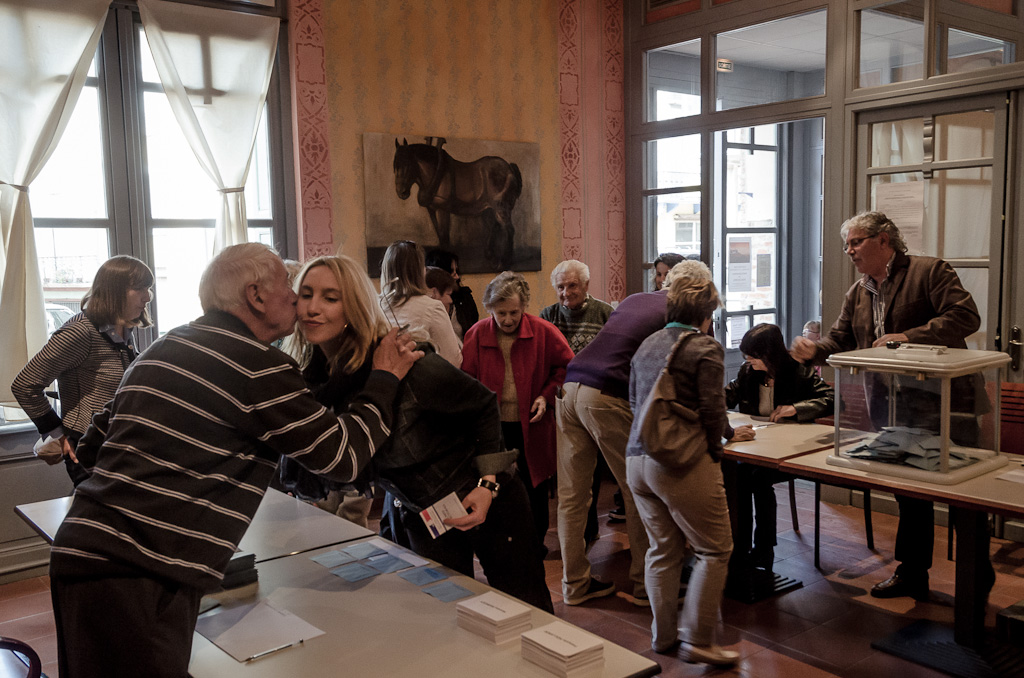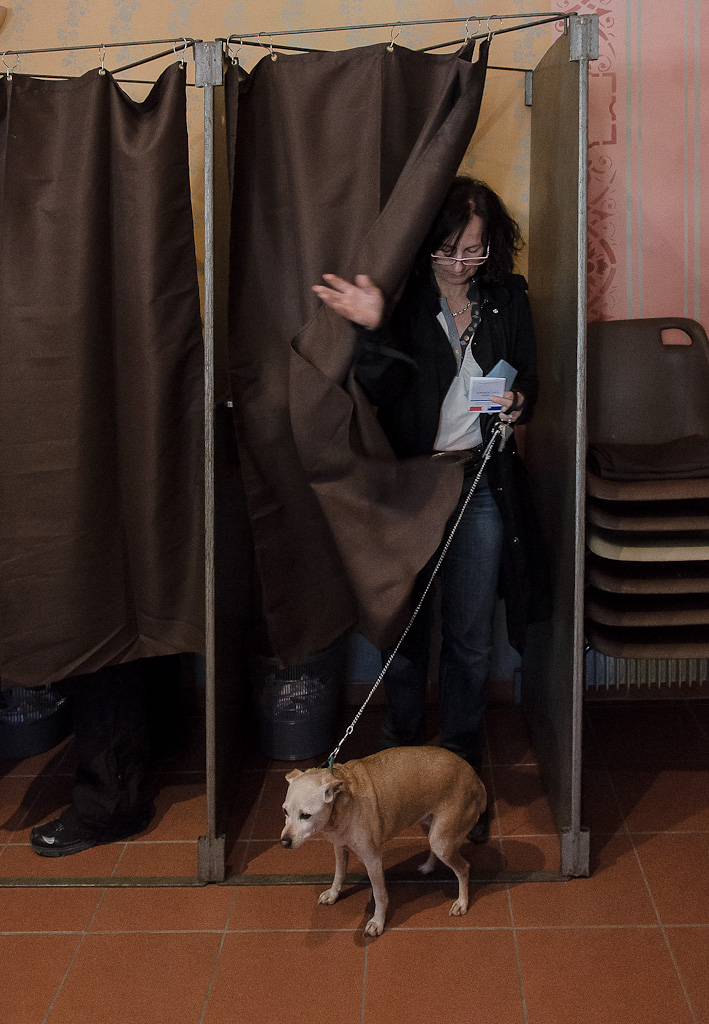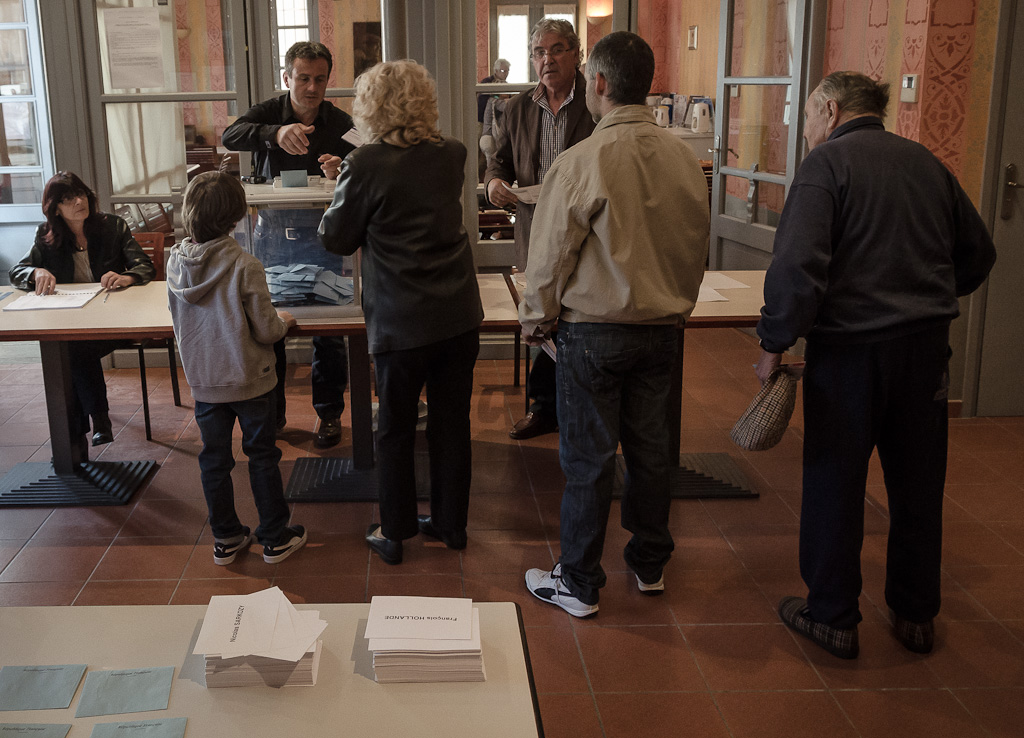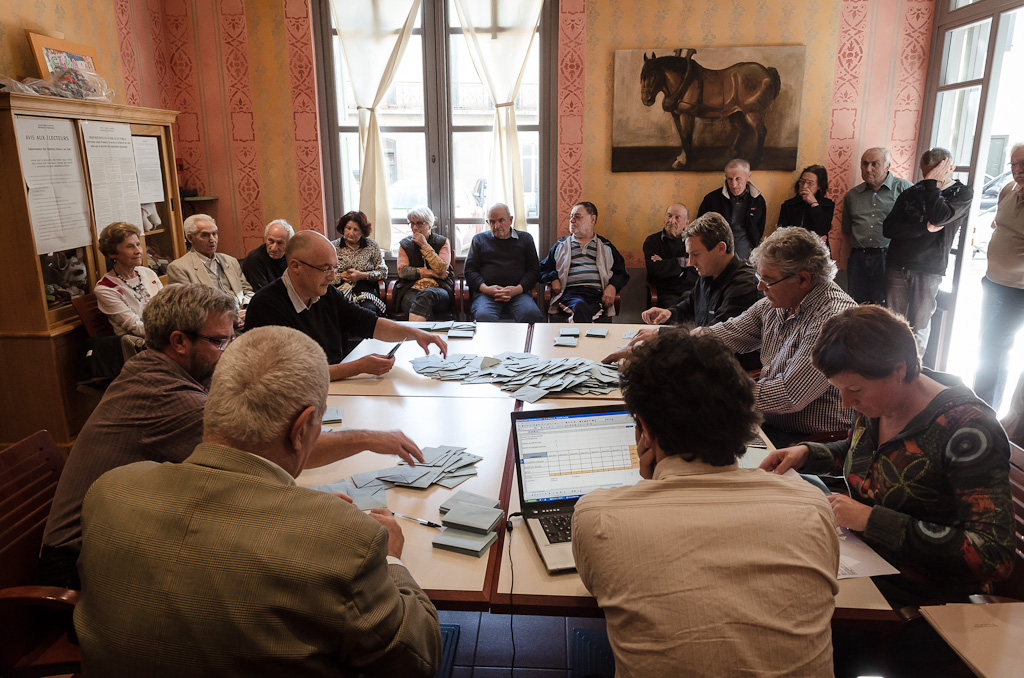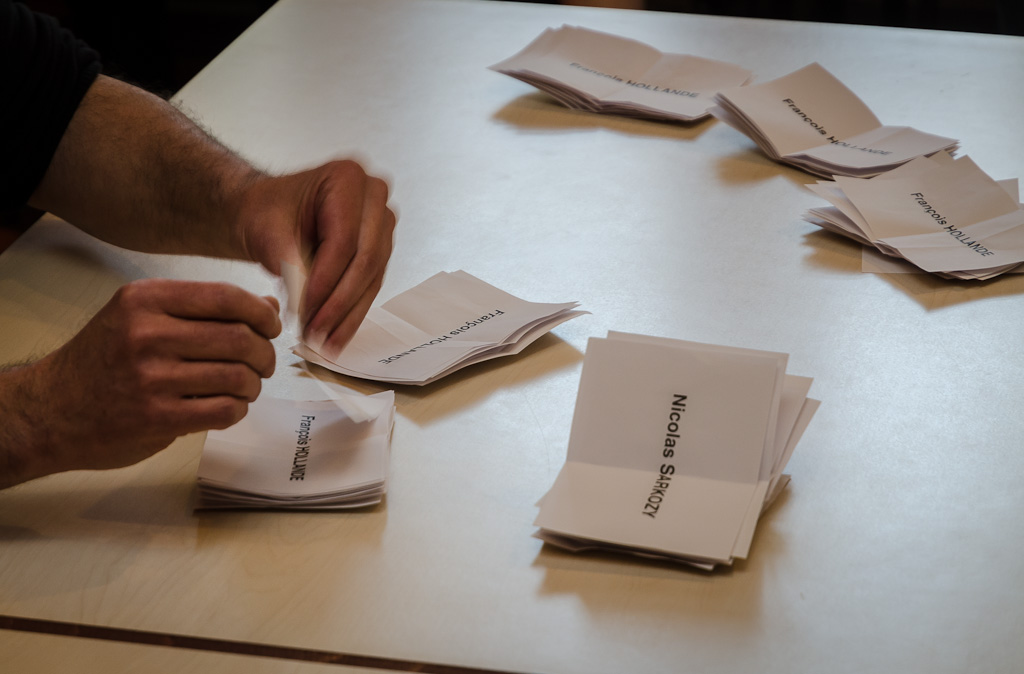Sunday morning. I shaved my face, donned a fresh black t-shirt and walked up to the Mairie to witness the climax of this most confounding and portentous election.
Charlie, the mayor of Maury, did a double take, smiled warmly, said “Ah, Ron”, and came to shake my hand. He introduced me to all the other poll workers, who nodded as they recognized “le photographe’, and said of course it would be fine for me to take photos as people voted. I shook hands all around the room and one woman said I had taken a beautiful picture of her father, Adrien. I remembered it, found it on my phone and showed it to her. “He died last year,” she said.
Charlie asked: “What’s going on in America, this Trump?” I gave my best French expression of disgust, a vehement “Beh!” Then said: “C’est pourquoi je suis ici.” “That’s why I’m here.” Everyone laughed and welcomed me back to town.
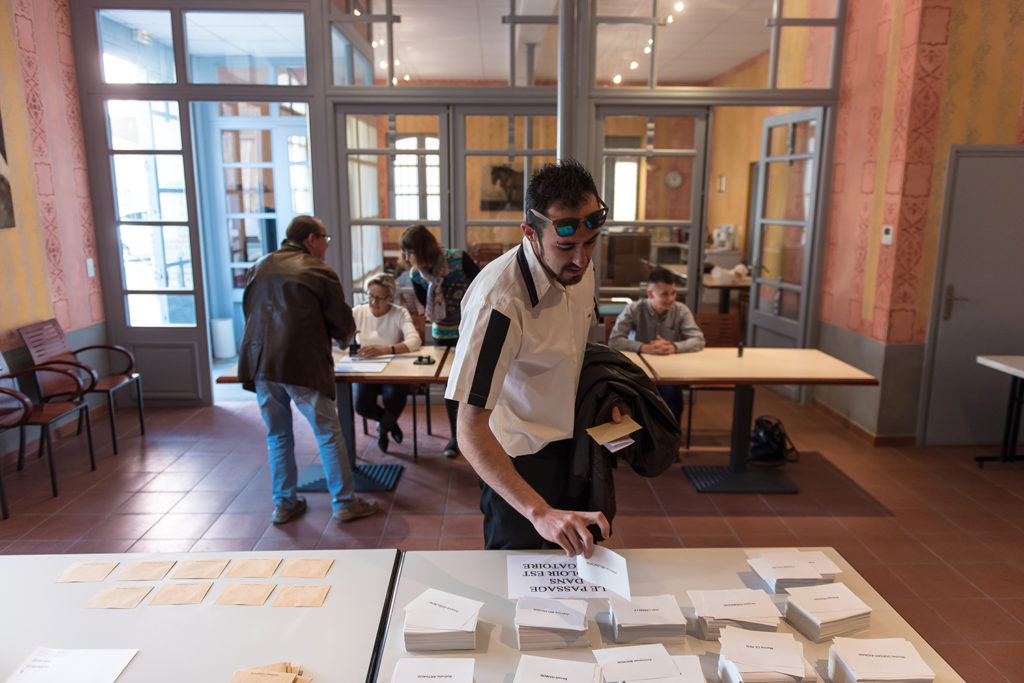
There are stacks of cards for each of the candidates and I asked if voters had to take all of them into the booth. “No, no, minimum two.” So you present identification, take at least two cards and an envelope into the booth, put one in the envelope, throw the others away, have your name checked off against the roll of eligible voters and your voting card stamped, deposit the card in a clear plexi box as the official calls your name and adds: “à voté”. But I noticed some voters took no cards, apparently intending to deposit an empty envelope in protest against all the candidates.
I told Charlie I’ll return for the results and went home to lunch.
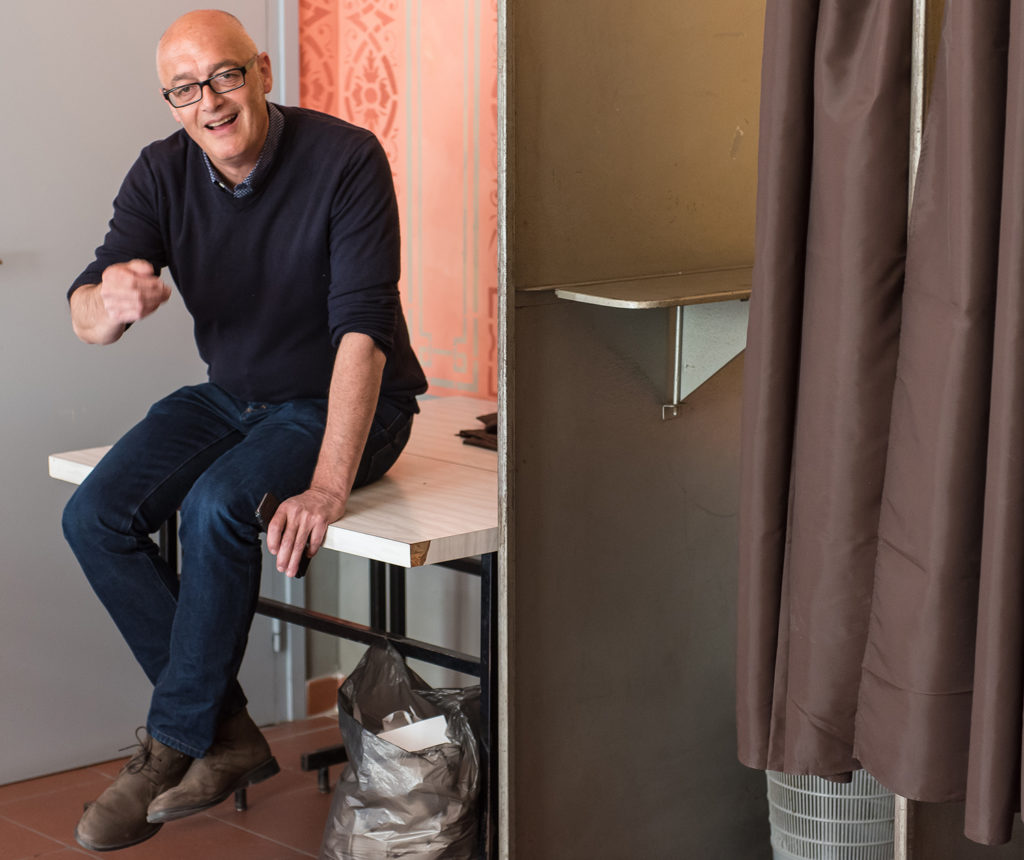
The Count
Envelopes are collected into batches of 100 and placed in larger envelopes, then opened, passed to someone else who reads the name aloud, which is then hand-tallied by two other officials. When the envelope is finished the count is read aloud, agreed and recorded. The room is absolutely silent except for the reading of names and results. No groans, no expressions of dismay, no wringing of hands although everyone I had talked to was appalled at the thought of President Le Pen. I had a good chat with Charlie, a test for my French but we made it. He really didn’t think she could be elected but he was certainly aware of the anger and uncertainty here, and everywhere and understands the decline of the traditional party structure and how many fear globalization and, of course, the anti-immigration fear of the “other”. And the alternatives are not terribly attractive. Mélenchon is a demagogue from the left, Fillon, a dinosaur on the right, Macron is pretty but who knows what lurks behind the façade.
Maury gave Le Pen a victory by about 25 votes over Macron, Mélenchon third, Fillon fourth. It surprised me—this area is traditionally solid Socialist—but maybe it shouldn’t have. Like many small villages, Maury is suffering. There are many houses for sale as the older generation dies off, few services for those who remain, and no jobs for the young. People are angry, confused, certain traditional politicians have let them down, but unsure where to turn. But it’s worth noting that about 75% of the Maury electorate voted, about a dozen cast blank ballots. Democracy may be unsettled in France, but people still care enough to participate.
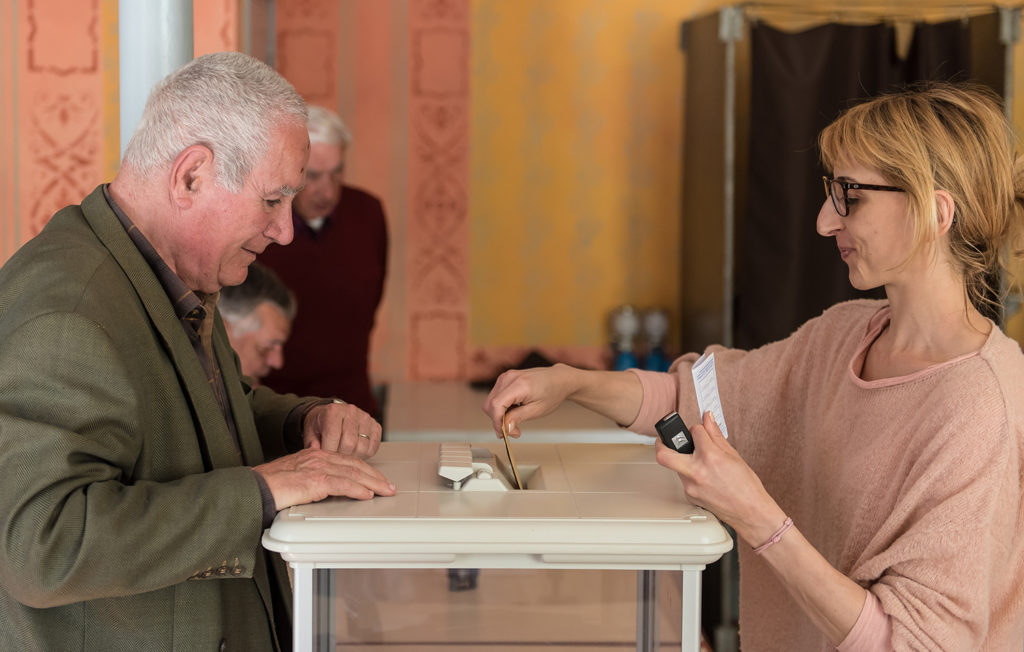
Conventional wisdom says the French vote with their emotions in the first round, their brains in the second. We’ll see. I was watching Charlie during the count and saw him receive a text, smile, and raise a clenched fist. I’m guessing Macron is doing well nationally.
Late results before a dinner of leftover chicken and salad: it appears to be a Le Pen/Macron runoff with Macron, supported by the political establishment, the heavy favorite. Le Pen will no doubt run hard against the elites, charging them with abandoning hard working and struggling French citizens by allowing manufacturing jobs to disappear, then opening the public treasury for immigrants.
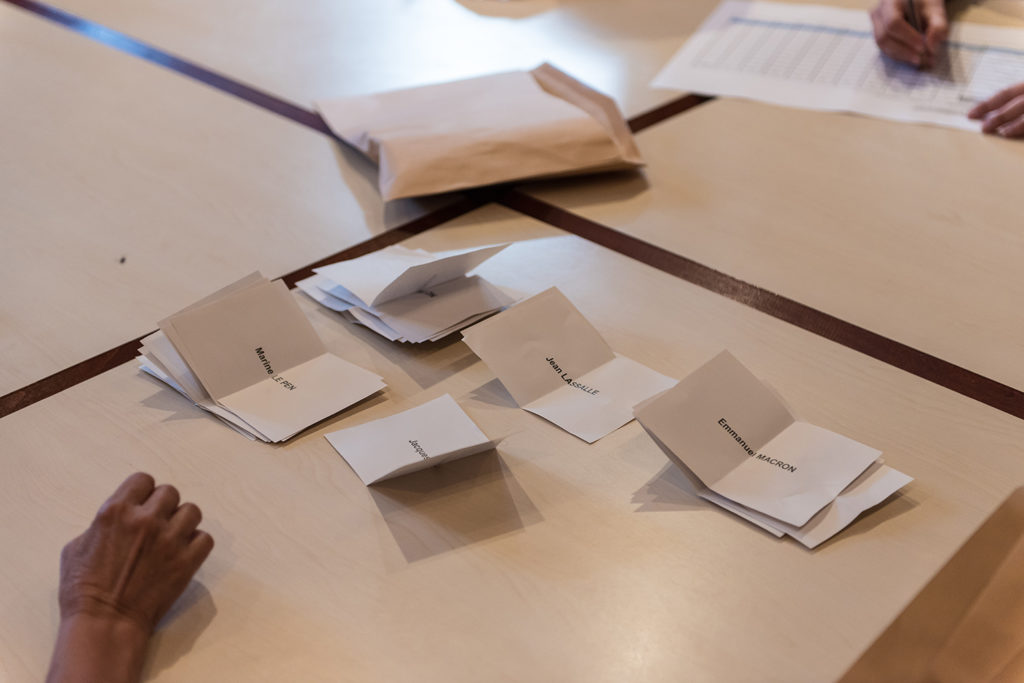
Sound familiar?
Whither France?
©2017 Ron scherl

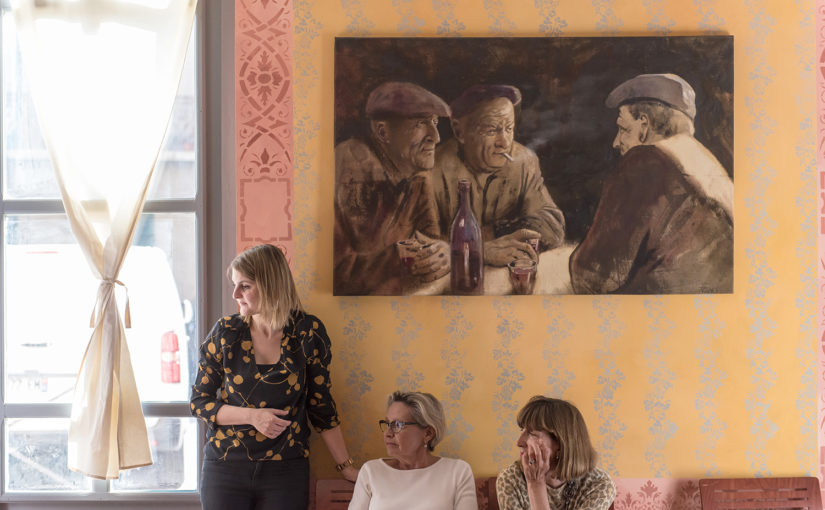
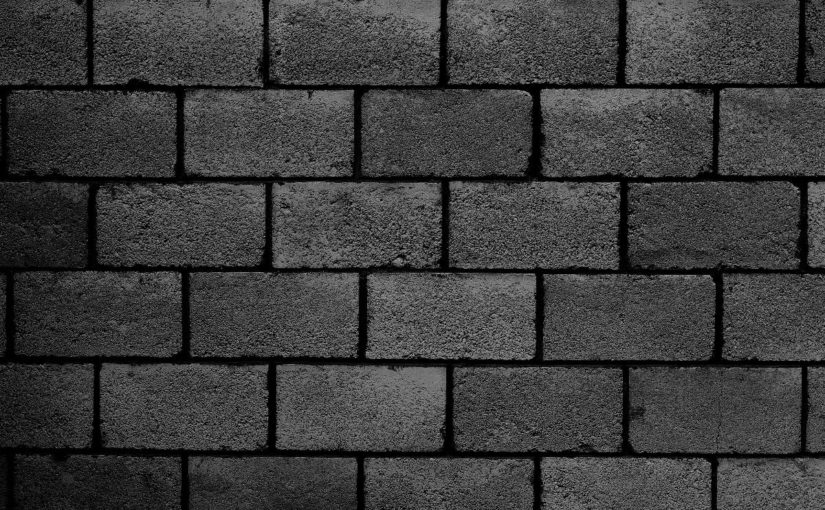
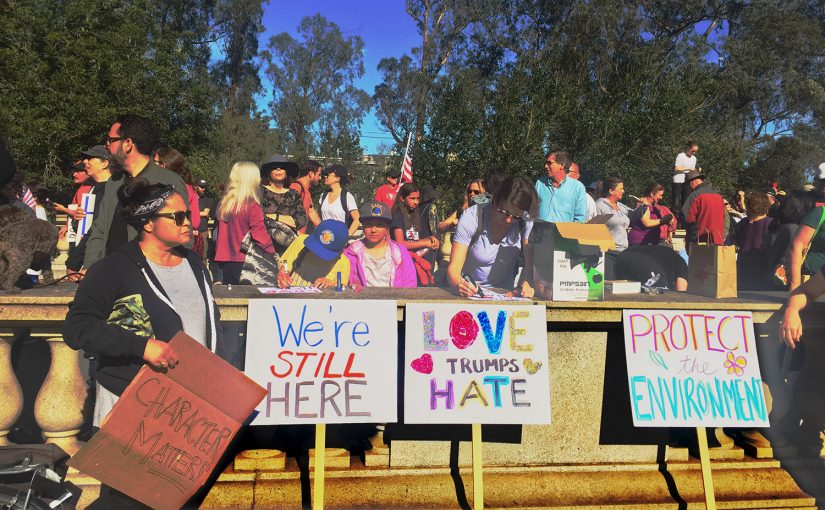
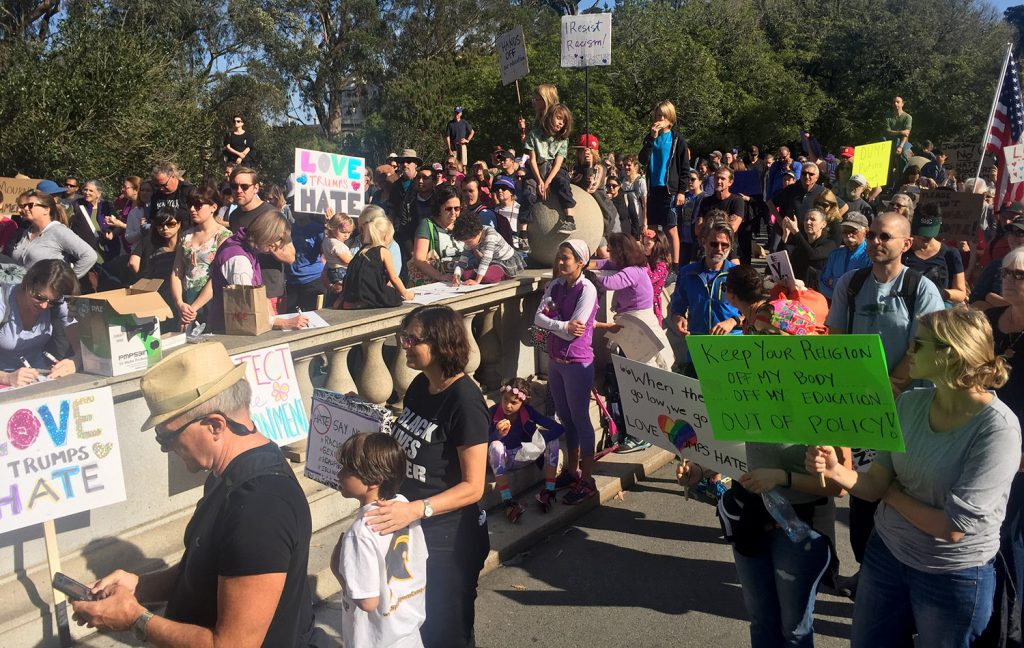 Didn’t help. There is no denying what this election says about America. There is no way to avoid the conclusion that racism, xenophobia, hate, misogyny, and ignorance have seeped to the surface because he made it acceptable.
Didn’t help. There is no denying what this election says about America. There is no way to avoid the conclusion that racism, xenophobia, hate, misogyny, and ignorance have seeped to the surface because he made it acceptable.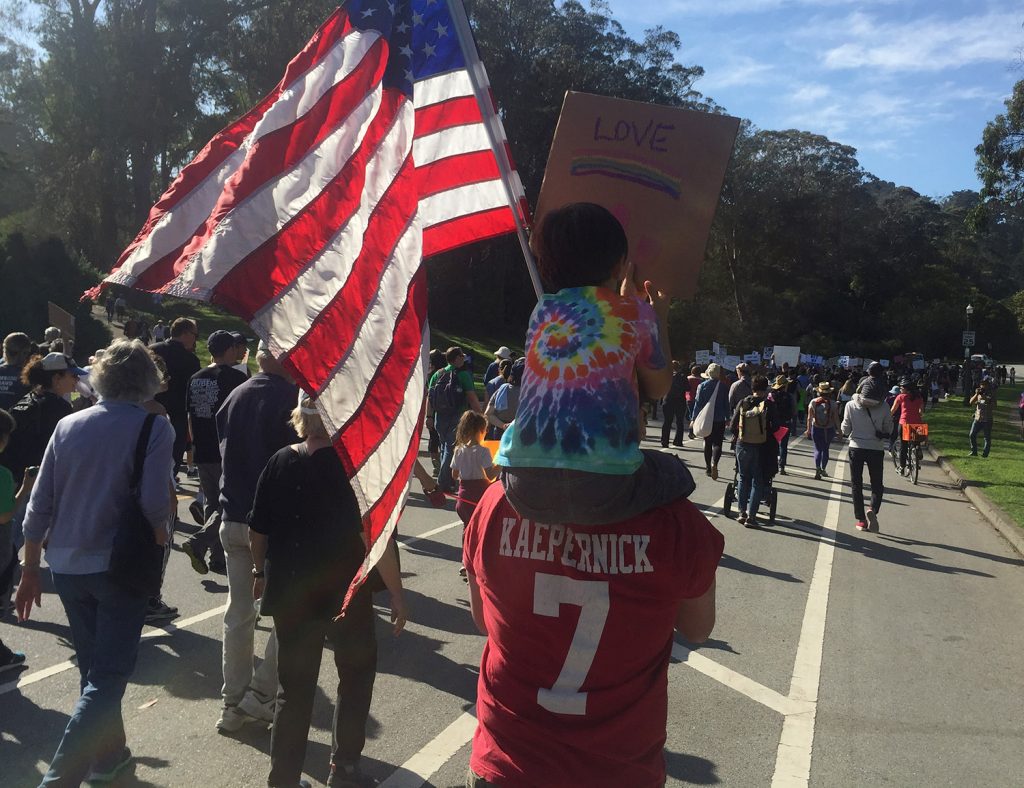 So much damage already done. So much worse to come. I’m looking, but I can’t see the light.
So much damage already done. So much worse to come. I’m looking, but I can’t see the light.
